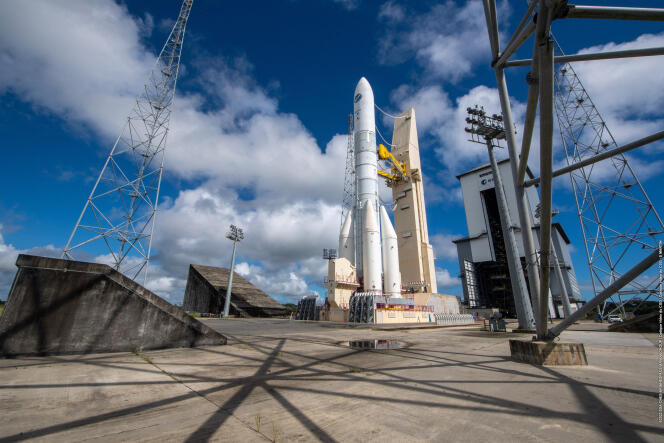


A bitter anniversary looms. On December 2, 2014, unsettled by the sudden emergence of Elon Musk, who was imposing himself on the launcher market by smashing prices, the Europeans reacted by deciding to design Ariane-6, a rocket capable of competing with the billionaire's Falcon 9s. The goal was to achieve a first flight in July 2020.
Almost nine years later, this deadline has long passed unachieved. Worse still, Musk's SpaceX dominates the market and sets the rules. As of this autumn, Europe no longer has access to space. The last Ariane-5 was launched in July and the planned transition to its successor, Ariane-6, has not gone ahead as planned due to accumulated delays. The first launch is not expected before 2024. To make matters worse, the small Italian Vega rocket made its last launch in October, and the program for the next model, Vega-C, was suspended after an in-flight failure.
In addition to the technical and industrial difficulties experienced by the Ariane-6 program and its cumbersome organization, political tensions have been mounting in recent years. Germany, one of the three main partners in the project led by the European Space Agency (ESA), alongside France, the program's prime contractor, and Italy, now wants to go it alone in space. It intends to put an end to ArianeGroup's French leadership in this field by pursuing its own development of mini-launch vehicles, which would compete with Ariane and Vega. To open the competition up, Berlin is exerting pressure by threatening to stop funding the European launcher, judged to be too expensive and poorly managed.
It is against this tense backdrop that the representatives of ESA's 22 member countries will meet on Monday, November 6 in Seville (Spain). This looks set to be a crucial meeting for the first of the two days of the Space Summit, held every six months in the country currently holding the rotating presidency of Europe – currently Spain – and which will continue the following day, Tuesday, with a European Union Council meeting devoted to space issues.
The aim is to find a compromise that guarantees the first 10 years of the Ariane-6 operation and to prepare for the future by opening up the launcher market to competition. If the discussions succeed, a new chapter in European space history will be written, marked by a paradigm shift similar to that experienced in the United States with the arrival of private competitors such as Musk.
The controversial issue is the funding of Ariane-6. Over time, the program's cost overruns have been grudgingly acknowledged by all participants who subscribed to the first 15 launches. But nothing has been resolved for the next phase, the operational phase. Initially, ESA's plan was for Ariane-6 to become autonomous from the 16th launch, with no need for additional contributions from member states. This is not the case, as soaring raw material prices and general inflation have aggravated the situation.
You have 60% of this article left to read. The rest is for subscribers only.
